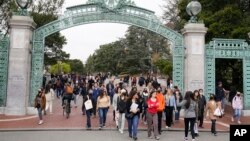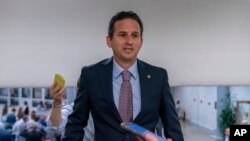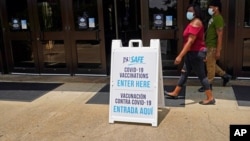Student Union
Top 5 Posts of the Year
In honor of a great 2011-2012 school year, we'll spend this week looking back at the year and some of our favorite posts (in case you missed them!). First off, our top 5 most read posts of the year...
5. How Old is Too Old to Start College?
Is there such thing as being too old to start college? Ryan thought he might be too old to start over, but quickly learned that non-traditional students are more traditional than he thought.
At AMINEF, when the counselor found out that I was 21, she assumed that I was applying for a graduate program. It was a funny misunderstanding, but at that exact moment, it struck me that I may be too old to start over pursuing my studies at a new college.
4. A Chinese Student's Story of Job-Hunting in the US
In this video, Qian shows off her talent for videography, as well as the story of a Chinese student's path to finding internships in America.
(Also check out Olena's discussion of her own experience looking for internships, and what she wishes she'd known before she started)
3. American Culture: Out of the Movies and Into Daily Reality
What happens when the dream of being in America meets the reality? Cristiana explores how well an immersion in American pop culture prepares you to actually arrive in America.
When a salesman in a fish market asked me “How are you doing, sweetie?” I was thrilled and amazed. It felt as if he had just emerged from the TV screen and spoke to me, or I had just crawled into the TV and met him.
2. 10 Ways Being a Student in the US is Different Than in Russia
Anna shares some of the things she's had to get used to about American academics. It's a list that includes everything from the number of classes (way fewer) to the prevalence of students ...umm... "collaborating" (way less).
Many Russian professors require that students take notes during the lecture or seminar. They often tell students what exactly to write down, and if they see someone is not taking notes they may ask the student to leave the classroom. In an American classroom it’s usually your choice what you want to write down or not.
1. On Being an African in the US: Navigating an Endless Web of Stereotypes
Simba takes a personal and insightful look at being African in the U.S., sharing some of the hurtful stereotypes he's encountered and thinking about why they persist.
While these comments all made me cringe inwardly in disbelief, none of them topped a remark I received while eating in the college dining hall early this semester, when somebody (Let’s call him Boy Z) remarked, “It must hurt you to see people throwing away food when so many people in Africa are starving.”
(Take a look also at the comments and responses, which are equally enlightening and interesting)
There you go. Your favorite posts of the past school year. Tomorrow I'll be getting a little less democratic and sharing MY favorite posts of the school year!
See all News Updates of the Day
Some colleges are making digital literacy classes mandatory

A 2019 study by Stanford found that most college students can’t tell the difference between real and fake news articles. Amid rampant online disinformation, and the threat of AI-generated images, some schools are making students learn “digital literacy” to graduate.
Lauren Coffeey reports for Inside Higher Ed. (March 2024)
With federal student aid delays, students aren’t sure what college will cost

The U.S. Department of Education’s federal student aid form (FAFSA) experienced serious glitches and delays this year.
Now, many students have been admitted to college, but don’t know how much money they’ll need to attend.
Read the story from Susan Svrluga and Danielle Douglas-Gabriel for The Washington Post. (March 2024)
Senator draws attention to universities that haven’t returned remains

More than 70 U.S. universities continue to hold human remains taken from Native American burial sites, although those remains were supposed to be returned 30 years ago.
Jennifer Bendery writes in Huffington Post that one senator has been using his position in an attempt to shame universities into returning remains and artifacts. (April 2024)
COVID forced one international student to go hungry

When Samantha (not her real name) enrolled in community college in the U.S., her family at home in South Africa scrimped and saved to support her.
But the COVID-19 pandemic hurt the family’s finances, and at one point Samantha had four on-campus jobs just to make ends meet. Many in the U.S. believe international students are wealthy sources of funding for universities, but stories like Samantha’s suggest otherwise.
Andrea Gutierrez reports for The World. (March 2024)
Tips for paying for a STEM degree as an international student

For US News & World Report, Melanie Lockert describes how to calculate the cost of a STEM degree, and where to find funding. (March 2024)






